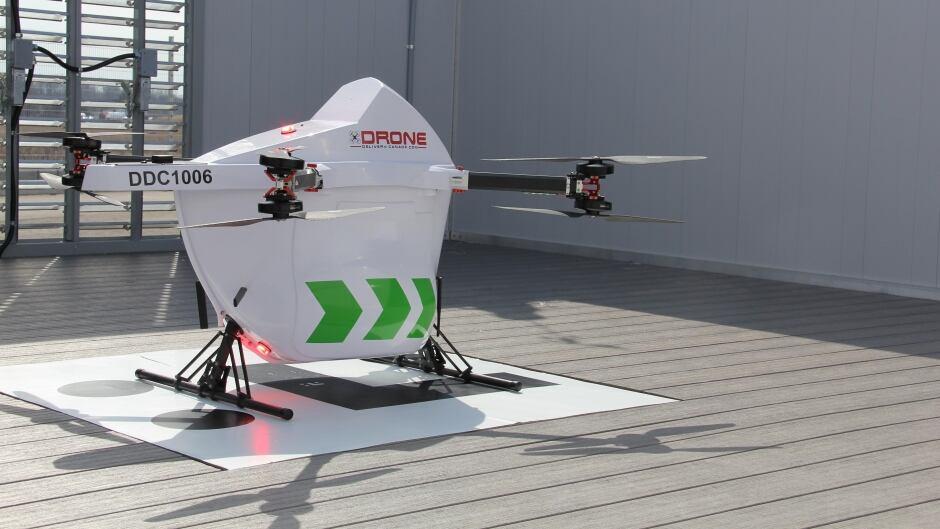
Drone technology is being used to improve access to healthcare supplies in rural and remote Indigenous communities, thanks to a pilot study that has gained the support of a major Canadian laboratory testing company.
The Stellat’en First Nation and Village of Fraser Lake are participating in the UBC faculty of medicine’s Remote Communities Drone Transport Initiative, which is a pilot program to see how drone technology can be used to improve access to healthcare supplies for Indigenous communities.
During the pilot study, drones will initially carry prototype packages between the Village of Fraser Lake and Stellat’en First Nation.
Once the flights are proven successful, the drones will transport laboratory samples, medical supplies and medications, allowing community members greater access to supplies and services without needing to leave their home community.
“This type of project here is unique. As a Native community, we’re at the forefront of the technology,” says Chief Robert Michell of Stellat’en First Nation. “It would be amazing in 10 years’ time to see where this goes. This is definitely a first step, and we’re proud to be a part of it.”
The initiative is also serving as a scalable model to enable the introduction of drone transport programs in other rural and remote Indigenous communities to improve access to healthcare supplies and services across B.C. and Canada.

The Drone Transport Initiative (DTI) is nearing completion of its first phase of testing drone flights carrying supplies and mock samples between Stellaquo and Fraser Lake, so that eventually real test samples can reach testing laboratories in a timely manner.
In phase three, which takes place after October 2022, researchers will gather all the data collected over the course of the entire project to examine and illustrate the benefits of implementing drone transport programs in First Nations communities that are separated from larger population centres by significant distances.
LifeLabs, a Canadian laboratory diagnostic company, has announced it is joining the Stellat’en First Nation, Village of Fraser Lake, the First Nations Health Authority (FHNA), the Rural Coordination Centre of BC (RCCbc), UBC’s Faculty of Medicine and Faculty of Pharmaceutical Sciences, and Drone Delivery Canada (DDC) in the study.
Through this partnership, LifeLabs will contribute to the development of standard operating procedures and ensure an end-to-end solution by participating in data evaluations, sample logistics, and training.
The company says this will also support important community engagement efforts with Stellat’en First Nation, which will assist in identifying lessons learned and factors supportive of cultural safety and humility in planning, implementation, and engagement practices.
Many rural and remote First Nations communities have unequal access to health care, due to factors such as transportation constraints and challenges with recruiting and retaining health care providers. The COVID-19 pandemic exacerbated many of these accessibility issues, especially with regards to transportation and testing of patient samples.
“Technology can be a game-changer and transform access and delivery for citizens who live in these communities. That’s not going to happen overnight—there’s going to be a lot of hard work over many years to continue to refine what we understand to be possible with this technology,” says Dr. John Pawlovich, Rural Doctors’ UBC Chair in Rural Health.
“The Drone Transport Initiative is our opportunity to start that journey with drone technology. The initiative cannot be done without the leadership and partnership of the two communities.”
The DTI initiative’s drone technology and service are provided by Drone Delivery Canada (DDC), and funding is provided through a grant from the TD Ready Challenge.